When you arrive in Ireland, particularly for the first time, you may be forgiven for thinking you’ve landed on an alien planet. And that while for the most part, people are speaking English, there are certain Irish slang words and phrases that may leave you baffled and confused. Fear no more. With my guide to certain Irish lingo, you will understand what the phrases mean and fit right in!
*This post contains affiliate links, which may include Amazon affiliate links. To read more about affiliate links, please visit my Disclosure Policy page.
Irish slang words and phrases and their meaning
This Irish slang dictionary will guide you through some of the common Irish slang phrases and words you may encounter during a trip to Ireland and will help you decipher and understand what is being said or referred to when you hear these terms. I’ve split these into sections: slang Irish phrases, slang Irish words, Irish expressions used for saying hello, Irish slang phrases for drunk and also Irish slang insults and swear words. Be advised, the last section contains swear/curse/cuss words, so if you don’t want to read them, skip the last section.
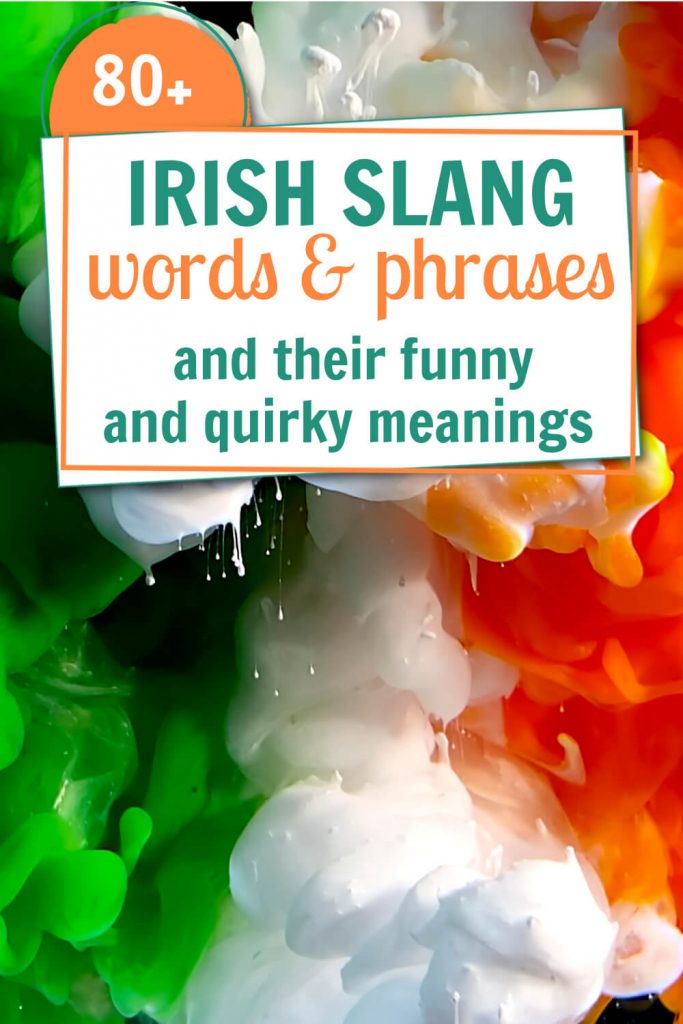
Irish slang phrases and meanings
Come here to me – You’ll hear this, usually, at the start of a conversation or sentence when someone wants to get your attention or has something important to me. When I was starting to put together this list with my husband, I wanted to run this list by him. He’d been in the middle of something on his computer, but when he turned around to me, I said “come here to me” (ie the first phrase) and his response was “I’m listening, haven’t I turned around”. He thought I was trying to get his attention, even though I already had it. I laughed until my belly hurt!
Jesus, Mary and Joseph – This is one of those Irish things to say that every Irish mammy will utter, over and over again. It can be used in all manner of situations as an exasperation. For example, if my son spills milk because he is not being careful pouring it, you’ll often hear me say “Jesus, Mary and Joseph, can you watch what you’re doing!”
I’ll burst ye – Can be used to indicate you’re going to swing for someone/hit them. This is quite a common Irish expression in Dublin.
Go away outta that – This is another Irish phrase that has a few meanings, depending on the situation. It can mean “you’re joking me” or “really” or for my Welsh readers, go away outta that = “never”.
Yer man over there – (with pointing or nodding of the head) This indicates that man over there.
Mocking is catching – If you are mocking or teasing someone about something, be careful karma doesn’t come to bite you in the backside!
Taking the piss – People say someone was taking the piss when they mean they were either being silly/stupid or they are teasing you. It can also mean they are taking advantage of you.
There’s a grand aul stretch in the evenings – This is often uttered in springtime, particularly when the clocks have moved forward in March and evenings are staying brighter for longer. There is not one Irish person I don’t know that doesn’t utter this at least once after the clocks have changed.

Were you born in a barn? – Leave a door open unnecessarily in an Irish house and you’ll hear this expression coming your way. Barns in Ireland often do not have doors, which is why you’ll hear this being asked of those who forget to close the door behind them.
Are you going for the ‘cure’? – You’ll hear this being asked of people who are hungover after a heavy night. The ‘cure’ denotes a pint of beer/Guinness to cure the hangover. Whether it actually cures the hangover is up for debate.
I will, yeah – This has the opposite meaning to what is implied. If you hear an Irish person say this in response to someone asking them to do something, it actually means there is not a hope in hell they will do it!
Sure look – People might say “sure look, it’ll be grand” to respond to a question. In this case it is a vague answer of “it’ll be ok”. People can also use this Irish expression to say “it is what it is”.
Sure you know yourself – A confirmation of knowledge or unspoken acknowledgement about something or a situation. It can mean you understand. You can also use it to avoid making decisions, using it instead of “it’s up to you”. You can also use it to respond to a greeting without giving too much away about how you are doing.
You jammy sod – Meaning you are very lucky. When my sister told me she’d won €50 on a bet during the Irish Grand National my immediate response was “you jammy sod”.
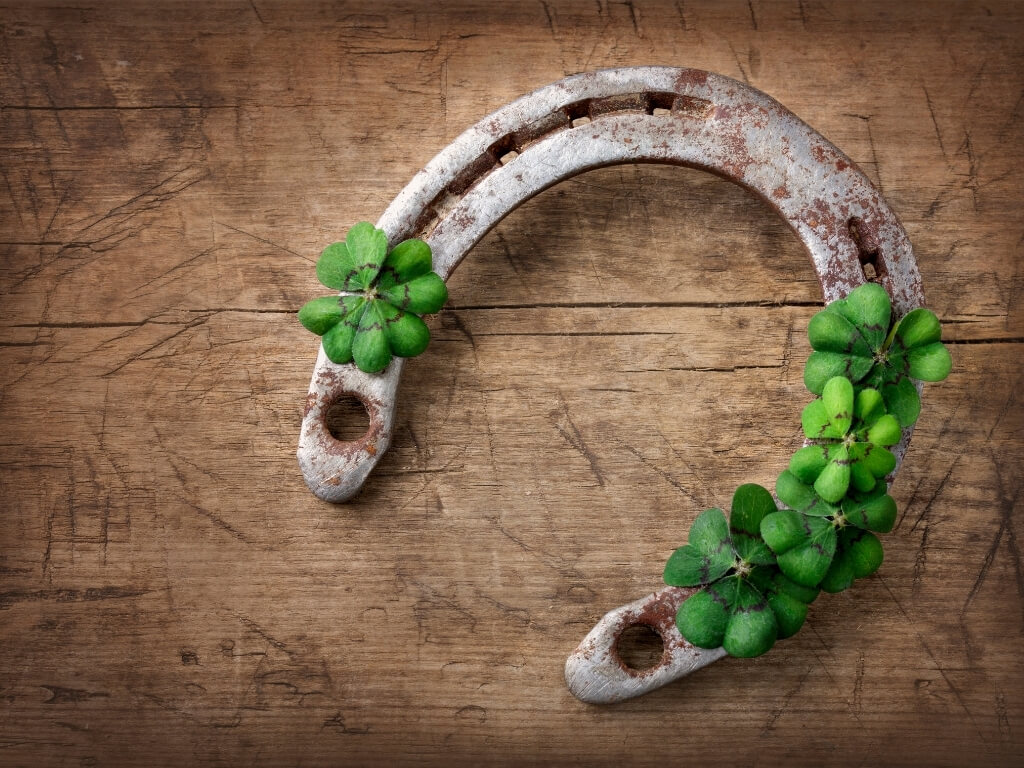
She’s away with the fairies – An Irish expression used to describe someone who is living in their own little bubble (la la land) or isn’t all there. Can also be used to describe someone who isn’t facing reality about something or a situation.
If you fall and break your legs, don’t come running to me! – This is one of those funny Irish phrases that an Irish parent will shout after their children when they insist on doing something that might hurt them.
My stomach thinks my throat’s been cut – An Irish slang phrase to indicate you are hungry.
Good luck – A different way of saying goodbye to someone. My brother-in-law uses this term all the time.
It’s lashing/bucketing outside – Means it is pouring with rain outside. And I mean heavy rain.
It’s a grand, soft day – Means it’s a rainy day, but more so fine, misty rain than pouring rain.
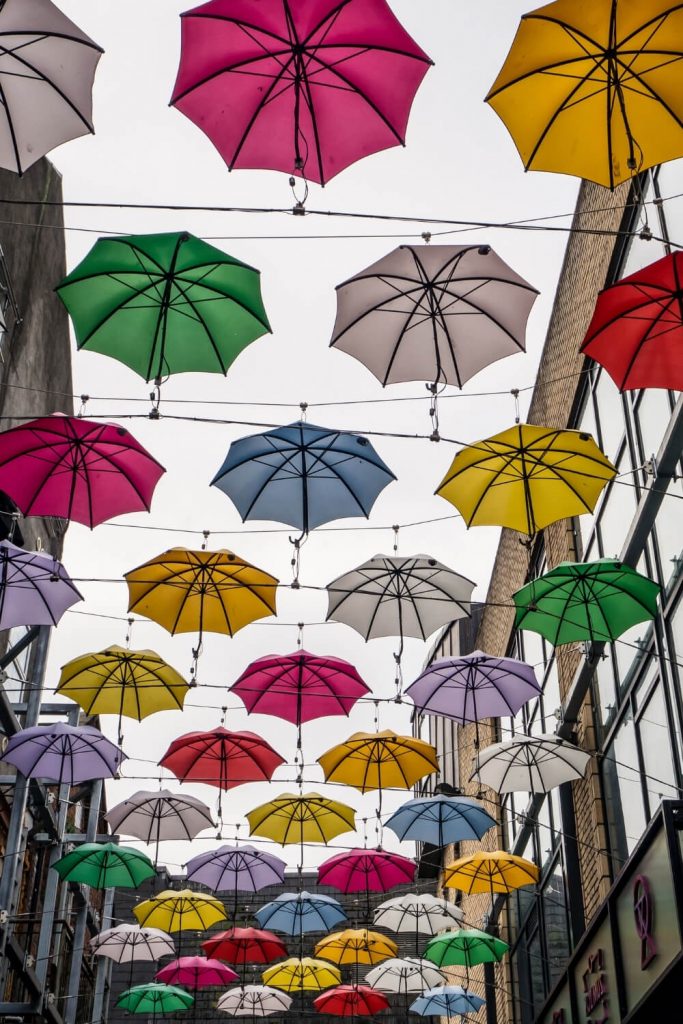
It’s a grand day for drying – This term is used to describe a day in which you can hang your clothes out on the washing line and get them dry. Given the lack of dry days in Ireland, you’ll be lucky to hear this said too often! If you hear this you should expect sunshine and warm weather, possibly a light breeze.
Cop on to yourself – Used to tell someone to pull themselves together. Or to tell someone to get sense about something.
Fair play – This Irish phrase is used a lot to tell someone “well done” for something they have done, completed or achieved. Or something they themselves wouldn’t attempt. For example, Mary says “John bungee jumped in Costa Rica last week”, to which Patrick, who would never do a bungee jump, responds “fair play to him”.
Up to 90 – If you hear someone say “she was up to 90” it usually means the person was busy or run ragged doing things. It can also be used to indicate someone is irritated or angry.
Giving out – Means someone is complaining about someone or something. “She’s always giving out” means she’s always complaining or moaning.
She’d talk the hind legs off a donkey – This girl/woman is a right chatterbox, never stops talking.
She’s got notions – In this sense, the word notions can be used as a dismissive put down or to indicate someone has ideas above their station. Someone having notions may think they are better than others or their situation is better than it actually is (whether they realise it or not).
Acting the maggot – This Irish slang term is used to say someone was acting the eejit, being stupid, fooling around and is often prefaced by the word STOP.
Stall it – An Irish way of saying wait, stop, pause. You’ll hear “stall it” when someone wants to pause at a shop and pop inside and they need their friends to stop and wait.

Give it a lash – This is used to tell someone to give it a go, try it, give it a whirl. Not to be confused with the following.
Going on the lash – Means going on a pub crawl, going for as many alcoholic drinks it takes to get drunk. “I’m going on the lash at the weekend” means I am going out drinking this weekend.
He put the heart across me – Means that person gave me a real scare/frightened me. Usually when a child has a near-miss at hurting themselves, you’ll hear grandparents saying “he put the heart across me”.
He wouldn’t spend Christmas – This slang Irish phrase is used to describe someone who is mean with their money.
He still has his communion money – Another expression used to describe a person who is tight with their money.
He’s a right chancer – This Irish term is used when talking about someone who chances their arm. Can also describe someone who takes risks.
To make a long story short – This can be used at the start of an explanation but beware, it doesn’t always mean it’ll be a short story. It might still be long, just a slightly shorter version of the whole story. You’ve been warned!
Wait till I tell you – This term is used at the start of a conversation that will entail gossip and scandal. If you hear this, prepare for a long story about someone else and it is guaranteed to include some secrets or gossip about the person being discussed.
Donkey’s years – Used to refer to a very long time. “I haven’t seen him in donkey’s years” means that you haven’t seen that person for a very long time. You will often hear Irish expats say “I haven’t heard that in donkey’s years” meaning whatever it is being said to them, they haven’t heard that in years and years. A bit like some of these phrases for me!
You could grow potatoes in those ears – This is used to tell someone they are not paying attention/hearing you and is used instead of saying “clean out your ears”. Irish mammies say this when children are not paying attention or don’t hear them and implies there is enough dirt in their ears, preventing them from listening, to grow potatoes.
You can’t make a silk purse out of a sow’s ear – This is a common phrase you’ll hear older Irish people sayings which implies you cannot make something good from something that is naturally bad. If something is inferior or ugly, you cannot change it into something of value or attractive.
May God strike me down/dead – When someone uses this term it can often be in conjunction with “if I’m lying” to indicate that they are telling the truth and being honest with you.
It’s Baltic/It’s roasting – Baltic indicates it is absolutely freezing outside, while roasting means it is really warm outside. People can also say “I’m roasting” meaning I’m really hot.
On me tod – People use this Irish slang phrase to let others know they were alone when doing something or going somewhere.
Leg it – This is used to tell someone to “run”. “I legged it for the bus” means I ran for the bus.
Get outta that garden – A fun Irish phrase used to get a laugh or reaction or can also be said to someone who is being nosy or doing something they shouldn’t. This is said often in my area of Dublin as a bit of humour.
Bye, bye, bye, bye, bye – One of my sisters in particular cannot hang up a phone call or WhatsApp conversation without at least saying bye five times or more. If she thinks five is not enough, she’ll repeat it. And I can tell you it’s not only my family that does this. Ask any Irish person!
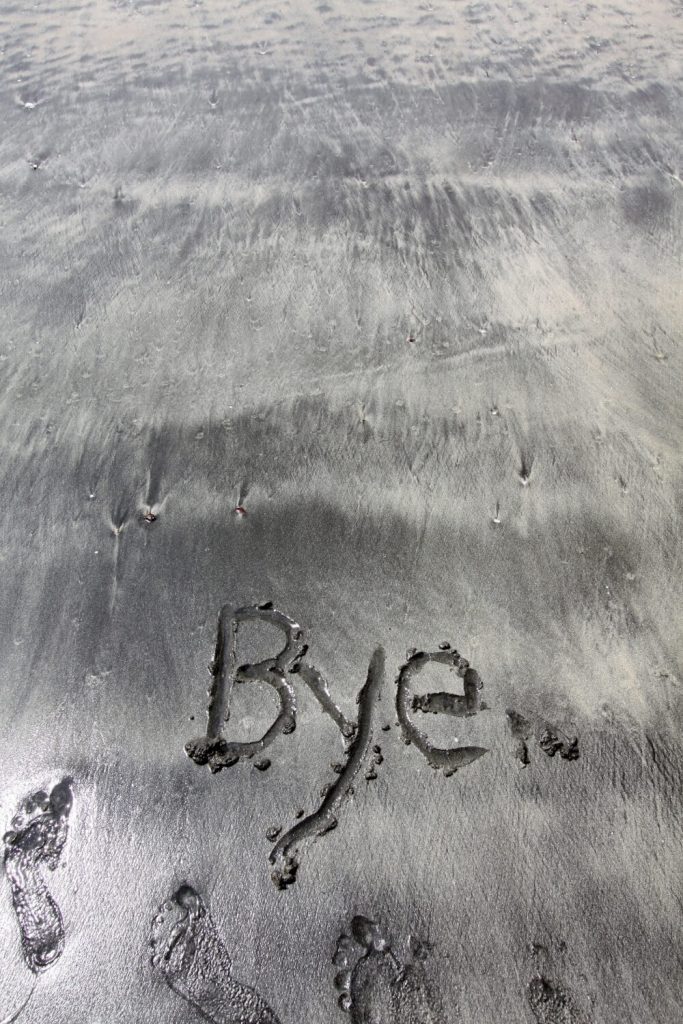
Irish slang words and meanings
Eejit – This is probably one of the most commonly used Irish slang terms that I know of. It can mean someone is an idiot, a bit silly or just plain stupid. You’ll often hear “he’s an awful eejit” meaning he’s a bit dumb.
Gobshite – An Irish slang word for fool, eejit, stupid person.
Muppet – Another word for stupid and can be substituted for eejit. Can also mean someone is a fool.
Grand – This is used in Irish phrases instead of using the word okay. “Sure, it’ll be grand” means it will be ok. Or if someone responds to the questions “how are you” with grand, it means they’re ok/fine.
Culchie/Langer – These are terms that usually refer to someone to who lives “down the country” and isn’t a Dub. These can be a derogatory term or meant lightly. But be careful if trying to use it yourself as the person on the receiving end might take offense.

Dryshite – A term used to describe someone who is boring, really boring. Someone who has no life or laughs in him. You may hear people saying “ he’s an awful dryshite”.
Sound – A word that can often be used instead of grand or okay. It can also sometimes be used instead of thanks. For example, Richard says “I got you a pint cause I was at the bar” to which Mick responds “sound”. Sound is also used to describe someone who is cool/alright. “He’s sound” means he’s alright as a person.
Scarlet – Is an Irish slang word for embarrassed. I remember kids in school saying “scarlet for you” meaning “I’m so embarrassed for you”. Comes from the fact that some people’s cheeks go red with embarrassment.
Deadly – Indicates that something is cool or awesome. People often answer with this expression when someone tells them something great. For example, “I managed to book tickets for that concert you were telling me about Paddy”, to which Paddy replies “deadly”.
Leppin – Another word for starving or hungry.
Craic – A word with a few meanings. It can mean fun, going’s on or gossip. “What’s the craic” can also be used to say hello to someone meaning “hi, any gossip/how is it going”. If someone says “the craic was 90” it means the fun, laughter and joviality was amazing.

Yoke – A word used instead of saying “thing”. Can also be used to mean a person. For example, “that yoke over there” means that thing over there but can also mean that person over there.
Gas – If an Irish person says “That’s gas”, they are not referring to an actual gas, they mean something is funny! You could say some of these Irish funny phrases are gas. See what I did there!
The “Jacks” – An Irish slang word for the toilet.
Banjaxed – This is used to describe something that is broken or not working. “The TV is banjaxed” simply means it’s not working.
Manky – Used to describe something that is dirty, horrible, ugly or disgusting. “A manky day out” refers to a day that is grey, miserable and probably raining too.
Janie (mac) – An expression to denote shock or exasperation.
Slievene – Means a sneaky person. “He’s a slievene” means he’s a sneaky so-and-so.
Raging – An Irish expression means someone is angry or disappointed with themselves. “I was raging I missed it” means I’m so disappointed I missed it. But “he was raging with her” means he was so angry with her.
Kip – This Irish slang word has two meanings. Going for a kip means going for a sleep, while saying somewhere is a kip means the place is dirty or bad in some way. It is often used to refer to rougher parts of Dublin in particular.
Gaff – The Irish slang word for house. If a teenager says they’ve a “free gaff” it usually means their parents are away/out and a party may ensue.
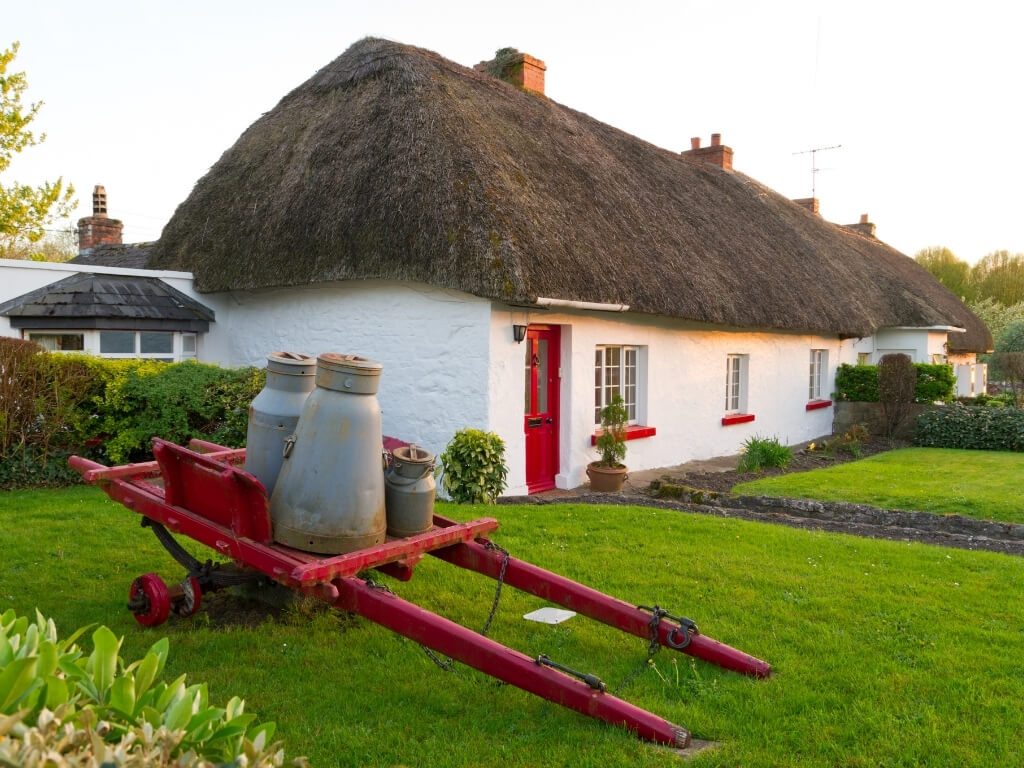
Jammers – when someone says “it was jammers” this means the bus/pub/train was packed with people. You’ll hear Dubliners saying “town was jammers” in the run up to Christmas when the streets are full of shoppers.
Slagging – This Irish term means teasing someone or means insulting someone behind their backs.
Dose – Means a case of illness. So, to have a “bad dose” means to have a bad case of the flu or a cold.
Irish expressions for greeting someone
Howya/Hewya – “How are you” cobbled into a one-word expression.
What’s the story? – Simply means what’s happening. This is often combined with howya/hewya, especially in Dublin so you may hear “howya, what’s the story?” as a greeting between people.
Story horse? – As above, usually instead of saying something like “hi buddy, any news”.
What’s the craic? – Same as what’s the story.
Hewya, me auld segotias – An old Irish way of saying “hi my friend”.
How’s the form?
How’s she hanging?
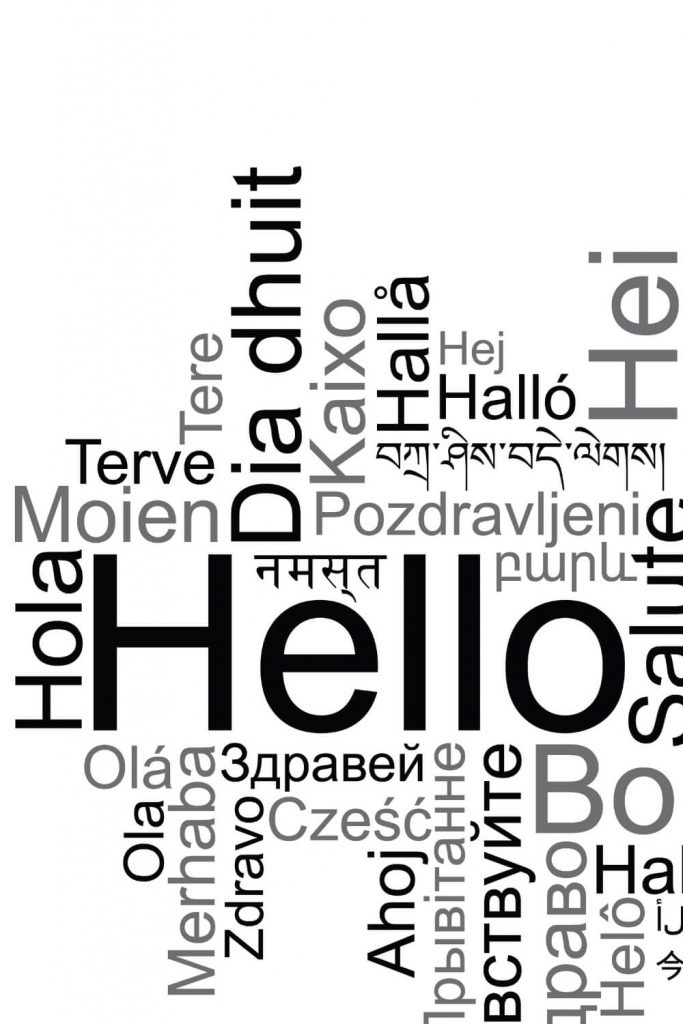
Irish slang for drunk
All of these Irish slang words can be used to describe someone who is drunk. Just substitute drunk in “he’s drunk” or “I was drunk” with one of the following words:
- pissed (as a fart)
- locked
- shit-faced
- fucked
- plastered
- hammered
- bollixed
- fluthered
- langered (a very country thing to say)
- paralletic
- ossified
- banjaxed
- scuttered
- in tatters
- in a heap
- rat-arsed
- in rag order/ribbons
- steaming
- half cut
- paralytic
- legless

Irish swear words and insult phrases
These Irish words and phrases include swear words or insults. They can often be used in jest as well as in spite.
Feck/Friggin/Flippin – All stem from fuck and are a lesser harsh version. You’ll often hear Irish mammies say “ah feck” instead of the f-word around kids.
Bloody – Can be used instead of the f-word or its connotations above. For example, “it’s bloody freezing” means it is really, really cold.
Shite – Meaning shit, rubbish or pants. “That was shite” can means that was rubbish.
To be pissed off/fucked off – Means to be annoyed with something/someone/a situation.
Ask me arse – Usually said to someone in response to a question to do something.
Bollocks/bollix – Can be used instead of saying bullshit. It can also be used in annoyance. For instance, John spills his pint of Guinness and shouts “Bollix” in annoyance. “Ah bollix” can also be used if you have forgotten something or done something wrong. It can be subsitited for “ah feck” but not around little ears!
Now you are prepared for your trip to Ireland with this dictionary of slang Irish words and phrases, and most importantly, their meanings to ensure you understand what people are saying around you. My advice is not to use them unless you are certain of their meaning and the situation is appropriate. If in doubt, don’t!
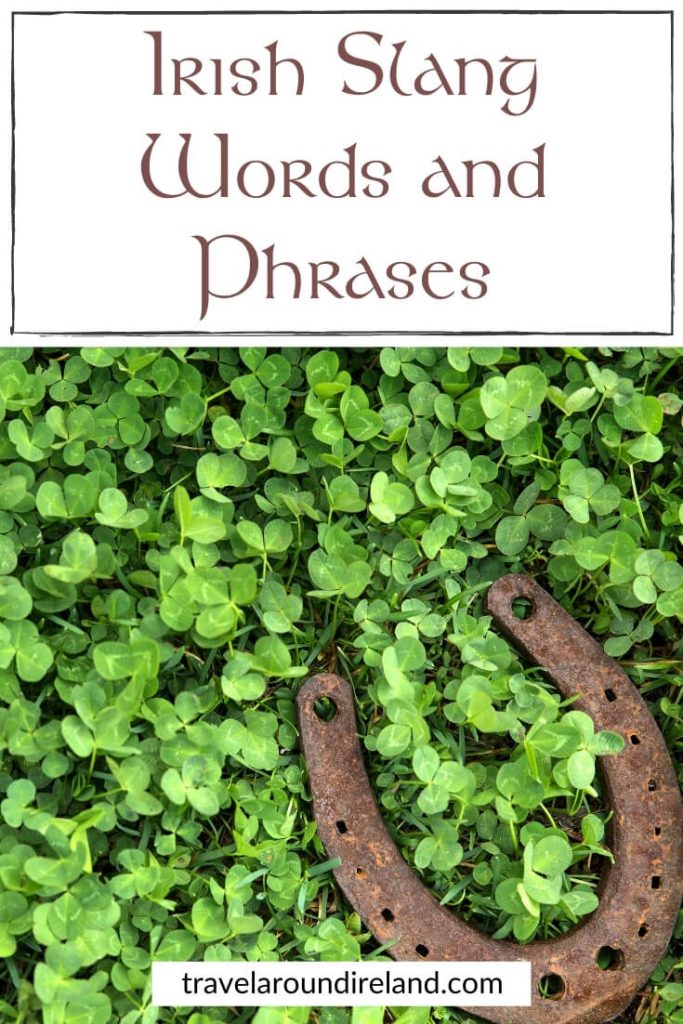


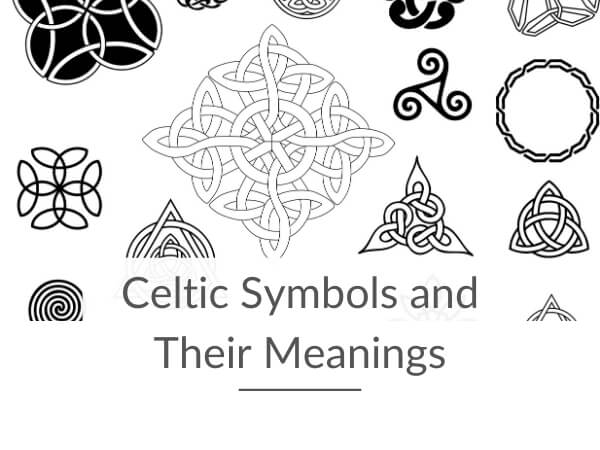

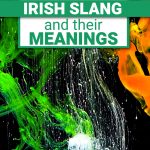
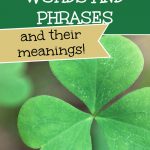
I loved this article, thank you! I’m Scots and so much (maybe 70% ?) is really familiar. So much so that I always thought that they WERE Scots. We use the same turns of phrase a lot apparently, mind you I’m in Dundee which had a huge Irish influx in the 18th & 19th centuries.
Thank you. Lovely to hear our Celtic ties are still going strong with us using many of the same terms. Glad you enjoyed the post 🙂
This is hilarious! I’ve never heard some of these terms before!
I’m interested in 18th century Irish slang, particularly the word they used to make denigrating remarks about the British. Can you recommend any books about 18th century Irish speech?
Hi Anna,
I am not familiar with any books. However, a quick Google search for 18th-century Irish speech suggested this:
https://www.goodreads.com/en/book/show/1100284
It is a book containing the gallows’ speeches from over 100 offenders. This *might* give you an insight. Unfortunately, it was all I could find. Not sure if it will help.
Wow this was amazing.
I’m irish and love all the slang that we have. its just so funny to hear new ones. Thanks for sharing this with people
Hello,
At a recent wedding of a friend I heard the expression “Two toes up and two toes down……. Is there more to that expression. I have a wedding of a friend coming up and would like to incorporate that into his wedding card.
Can you help me?
That’s a new one on me I’m afraid.
Mind your martins. An old Dublin expression. Came from Andrew Martin who was a lion tamer in Dublin.
I will me in my ars*.
Get up the yard
The face of ya.
Janey mack.
He was a tall order.
I haven’t heard Janey Mack in ages!
A lot of these we say in Texas. Or at least my family does. Crazy, but my grandmother was Scottish so maybe that’s why.
Well, since both the Irish and Scots are Celts, it isn’t hard to believe we sharing sayings, phrases and traits 🙂
Hi~~My dad, who was from Co Mayo, used to refer to my son as a bunyahaun ( I have no idea of the spelling but that’s what it sounds like. ) I took it to mean a little troublemaker. Does it have a meaning? A lot of these sayings I heard from my dad and mother (her family was from Galway) I enjoyed this article. Thanks.
That’s a new one on me I’m afraid. My family had a house in County Galway so maybe I’ll ask one of my sisters who went to school there.
Glad you enjoyed the article all the same 🙂
As I read the contents of all the saying’s I started to laugh so much, I was not born in Ireland, but Ireland was born in me. My father was Irish and so was all his family. It made me remember of all the sayings that I have been saying all my life, and not give one thought about them. I wish I lived in Ireland, and be able to hear and see all those I could listen to through my father.
Thank you for sharing all those sayings that I have missed. At 80 year’s old, my memories are coming back again.
Hi Dorothy,
Thank you for your kind words. I’m glad you enjoyed the article 🙂
This post is a riot! I had no idea Irish slang could be so entertaining. “Culchie” and “gowl” are definitely my new favorite words. Can’t wait to sprinkle some of these into my conversations!
Absolutely loved this post! The slang words and phrases were not just hilarious but also gave me a real insight into Irish culture. I can’t wait to drop a few of these at my next gathering! Cheers for the laughs!